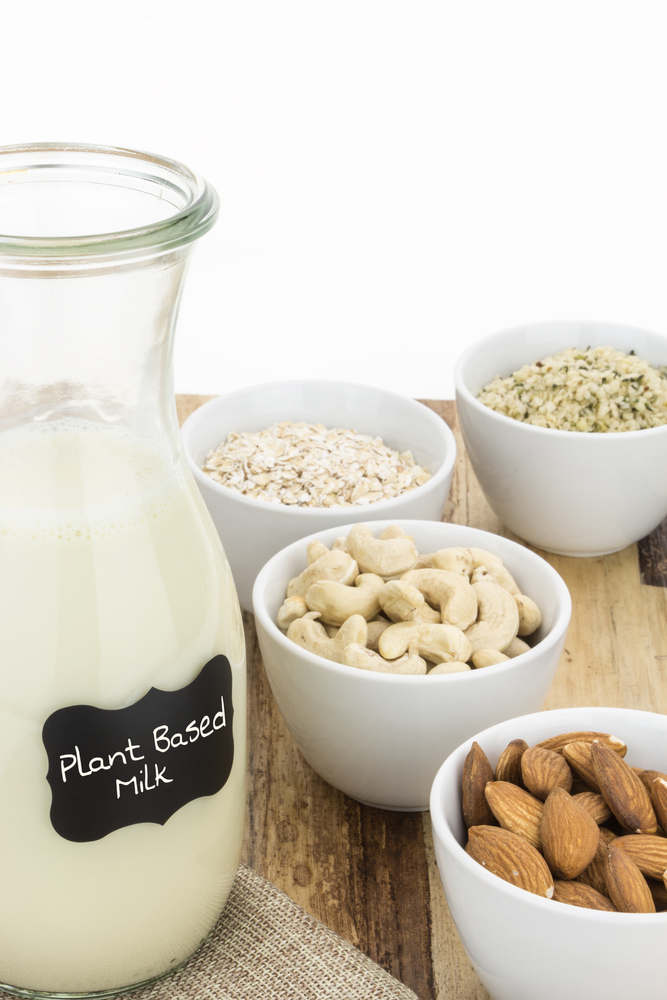Breastmilk/chest milk or infant formula provide all the nutrients and fluids your baby needs until they are six months old. If they are thirsty or the weather is hot, breastfeed/chestfeed or bottle feed more often.
When can I give my baby water?
- Once your baby is six months old, you can try giving them water to drink in a regular cup occasionally at mealtime. This will help them learn how to drink.
- You can give your baby cold tap water.
- If you live in an older home there could be lead in the water. To find out more, ask your public health nurse or go to: Lead – Government of Manitba
Bottled water can be used for infants over six months but is not necessary if your tap water is safe to drink.
- Don’t give them distilled, carbonated or mineral water.
When can my baby drink milk?
- Your baby can have whole cow’s milk or fortified goat’s milk when they are nine to twelve months old and eating a variety of iron-rich foods.
- Whole milk is lower in iron than breastmilk/chest milk and infant formula. If your baby is not getting enough iron from other iron-rich foods they may become iron deficient.
- Babies and children under two should be given whole (homogenized) milk. Look for 3.25% M.F.
- Whole milk provides the fat and calories that your baby’s developing brain and body needs for proper growth and development. Avoid giving skim, 1% or 2% milk to children under two.
- Always use pasteurized milk. Unpasteurized milk can have bacteria which can make your child sick.
- If you give your baby evaporated or powdered milk, make sure you add the right amount of water. Choose full-fat (not low fat or fat-free) evaporated or powdered milk.
- Limit whole milk to three cups (750 mL) per day. Too much milk can fill up your baby and they won’t have room for other foods.
- If your baby has a milk allergy or intolerance, is vegan or avoids milk products for cultural or religious reasons, continue to breastfeed/chestfeed. If your baby is on a soy-based formula, continue until they are two years old. At two years old, they can have fortified soy beverage. If you have any questions, speak to your health care provider.
Parent Tip
Wait until your child is at least two years old before giving 2% M.F. cow’s milk.
Can I give my baby plant-based beverages?
- Do not offer your baby soy, rice, almond or other plant-based beverages. These do not have enough protein, calories, minerals or vitamins to help your baby grow.
- Once your child is two years old, you can offer them unsweetened, full-fat fortified soy beverage as nutritionally, it is the most similar to cow’s milk.
- Other plant-based beverages such as rice and almond beverages are too low in protein and fat for healthy growth and development. They can be offered at two years old, but don’t consider them as a substitute for milk. Offer other foods that are high in protein to your child.
Should my baby have juice?
- Your baby doesn’t need juice. It is high in sugar and can cause cavities.
- Too much juice can also cause diarrhea and fill them up, leaving little room for them to eat the nutritious foods they need.
- Your baby gets enough to drink from breastmilk/chest milk or formula. If they are thirsty, you can give them water.
- If you do choose to give them juice, wait until your baby is eating fruit and other foods. Offer 100% pure fruit juice without added sugar in an open cup. Make sure it is pasteurized.
- Do not give your baby more than ½ cup (125 mL) of fruit juice per day. It is your choice whether or not to add water.
Should I give my baby other drinks like fruit punch, sport drinks, pop, tea or beverages with caffeine?
- Do not give your baby sweetened beverages such as fruit drinks, fruit punch, sports drinks or soft drinks. Sweetened beverages are high in sugar which can be harmful to your baby’s developing teeth. These beverages are also low in vitamins and minerals and fill them up which can make your baby too full to eat the nutritious foods they need for healthy growth and development.
- Don’t give your baby herbal teas.
- Don’t give your baby beverages that contain caffeine (e.g. tea, coffee, hot chocolate, some carbonated drinks) or artificial sweeteners.
References and Resources:
Questions?
If you have a nutrition or food question, call Dial-a-Dietitian Manitoba at 204-788-8248 in Winnipeg or 1-877-830-2892. If you have a nutrition or food


